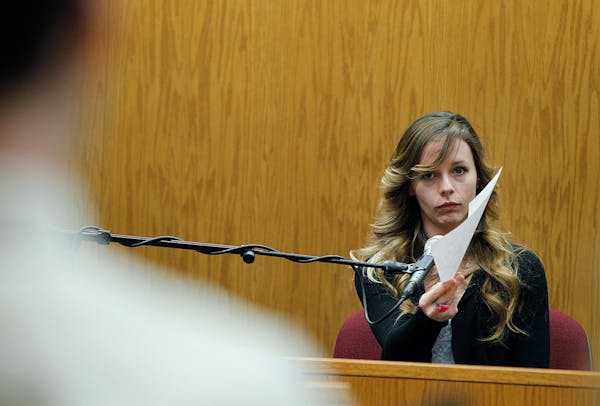HUDSON, Wis. – River Falls police officer Christopher Kober got to the Schaffhausen home first that sunny July afternoon, responding to a call that children there might be dead.
Waiting for backup with his gun drawn near the garage, he noticed through a window that the fireplace was on inside, he testified Thursday.
Kober and three other officers quickly searched the Morningside Avenue house. With a strong odor of gas in the basement, they moved quickly to the upstairs and found three girls in their beds, deceased. Then they had to sprint out, he said: "I don't want to be inside there when a house blows up on me."
As prosecutors continued trying to build a case that Aaron Schaffhausen was sane and in control of his actions when he killed his daughters and spilled gasoline in the basement July 10, they called more than a dozen witnesses to the stand in his trial.
Schaffhausen has pleaded guilty to killing 11-year-old Amara, 8-year-old Sophie, 5-year-old Cecilia, as well as a count of attempted arson. His attorneys are trying to prove that he suffered from a mental disease or defect at the time, couldn't control his actions and should be sent to a mental institution instead of prison.
The defense rested its case Wednesday. Prosecutors are expected to continue presenting theirs into next week.
Witnesses on Thursday included a credit union worker who testified that Schaffhausen withdrew $1,000 the day before he killed the girls. A cellphone record analyst testified about logs of calls made to and from his phone around the days of the slayings. Toxicologists said that tests found evidence of only caffeine, nicotine and a trace of alcohol in blood collected from Schaffhausen about 8:30 the night of the killings.
Kober and other officers testified about arriving at the house that day and collecting evidence. The officer who saw Schaffhausen outside the police department when he turned himself in testified about how he escorted the defendant into the building, handcuffed him, patted him down and later took him to the hospital and the jail.
Prosecutor Gary Freyberg posed that officer a pointed question: "During the time the defendant was in your presence, did he ever appear to lack control over his actions?" Freyberg asked.
The officer responded no.
Pam Louwagie • 612-673-7102

